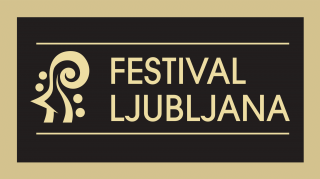1. This year you are celebrating 30 years of appearances at the Ljubljana Festival. How are you planning to mark this important anniversary?
I can’t believe this is really going to be my thirtieth year of concerts at the Festival. Given the weather, which has only started to clear up a bit these last few days, it hasn’t been possible to plan anything really special yet, but last year’s concert at the same venue was a great event and I’m sure that this year will be no different. Perhaps Festival Ljubljana are going to surprise me: the director always has good ideas.
2. Do you have any anecdotes you can share with us from your concerts at Križanke?
Perhaps the most nerve-wracking time was during a performance with Beltinška Banda, when Janez Kociper’s violin fell apart as he was playing it. It literally collapsed. I quickly made a few subtle changes to the setlist, since I assumed we wouldn’t be hearing any more violin that day. Meanwhile, a real drama was taking place backstage. Our keyboard player Jure, who has a watchmaker’s shop two hundred metres from Križanke and is also an excellent restorer, ran off to get some special glue, and twenty minutes later Kociper’s heart-wrenching violin was crying out once again. If someone hadn’t filmed it, I wouldn’t have believed it.
Another time I was feeling really ill before going onstage at Križanke. Naturally, the idea of cancelling the show never even crossed my mind. I spent the concert sitting on a chair and practically whispering the songs. The lads and the gentlemen of Beltinška Banda just looked at each other in surprise and played more quietly than ever before. The evening after the concert I got a text message from Manca Košir: “Of all the concerts of yours that I’ve seen, that was the most beautiful and the quietest, but what was weighing on your soul, why was your body so heavy?”
The next morning I dragged myself off to the hospital, where they stuck a needle in my back and told me to lie down: meningitis! Two weeks later, after I got back home, I wrote to Manca: “Don’t worry, the soul’s fine, it’s just meningitis!”
3. Over the course of your rich career you have performed with countless successful musicians and groups from Slovenia and abroad, including such big names as R.E.M., Bob Dylan, Rade Šerbedžija and Siddharta. Is there any performance that particularly sticks in your memory?
Every performance is something special. Being onstage with R.E.M. at Tivoli Hall, performing with a brass band in Kidričevo, playing with Beltinška Banda at Križanke or with Blek Panters on a raft on Ada Ciganlija in Belgrade. Lots of moments that I will remember forever.
4. You began your professional music career as a rock musician but then switched to folk and world music. What prompted that decision?
Beltinška Banda are a group from Beltinci [in Slovenia’s north-eastern Prekmurje region] and the Kociper brothers were playing at my grandfather’s inn as long ago as the interwar period, so it would have been strange if our musical paths hadn’t crossed.
5. That’s when you started working with Beltinška Banda, of which your father Milan is also a member. Given that you’ve been collaborating successfully for so long, how do you manage to keep a balance between family and business?
Perhaps the fact that we no longer live at the same address helps. Otherwise, we complement each other pretty well. My father was an accountant his whole career, but as he himself says – show business is show business.
7. How does it feel when the audience sings along to songs you’ve written that have now become popular standards?
It’s a good feeling when you see that your thoughts have managed to touch someone else. Sometimes I’m surprised to see which songs are sung by the older members of the audience and which by the younger.
8. Last year you won the Ježek Prize. Were you happy to receive this honour?
Of course. I have enormous esteem for the work and figure of Frane Milčinski, better known as Ježek, and for all the fellow artists and performers who have received this award before me.

